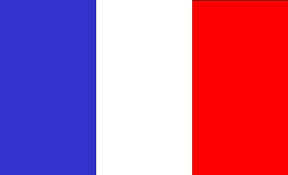Honorary Irish/ Englishmen
(from The London Chronicle)
I thought of the seditious contribution to the dual
cultures from Englishmen who became honorary Irishmen by dishonouring their
birthright. They ranged from Jonathan Swift to Roger Casement. Swift traded in
ideas, and is immortal, Casement in arms, and was put to death.
‘Treason doth never prosper, for when it prospers none dare
call it treason’, said Sir John Harrington, Elizabethan inventor of the modern
toilet,. who
after the Flight of the Earls came to Ireland to scramble for land, like so
many other literary adventurers (Walter Raleigh, Philip Sidney, Edmund Campion
and Spenser). He returned to England empty-handed and on his knees alienated
his cousin, Queen Elizabeth, by his weakness for jokes in poor taste. And so
translated Ariosto’s Orlando Furioso. .
Shelley brought his father-in-law’s ideas on freedom and
the common good onto the streets of Dublin ‘to promote happiness by eliminating
guilt’. Whose guilt, the ‘mere Irish’ might have reasonably asked, as they
rattled Britannia’s chains? But nobody paid any attention. ‘Irony is the pudeur
of humanity’ (Jules Renard), and there is a sweet innocence in the ideas of
William Godwin, the most egalitarian of English thinkers, being busked on Grafton
Street by one of the greatest of its poets, and asked to move on.
At
the eleventh hour of British rule in Ireland, honorary Irishmen had their comic
apotheosis in Hynes, the would-be Irishman in Joyce’s Ulysses.
Meanwhile, there were Englishmen amongst the leaders of the 1916 insurrection
that harbingered the end. Four of them were executed, if you count the Pearse
brothers whose father was a stone mason from Birmingham. Of course, untold
number of Irishmen died in England’s wars.
But
culturally the reversal didn’t work so well with the native Irish. A handful of
comic playwrights and gothic novelists crossed the Irish Sea. It wasn’t exactly
encouraged back home in Ireland. It was like ‘taking the soup’. In fact the
only major 19th century novelist in English to have been an
Irish-speaking peasant, William Carleton, became a Protestant. But he was too
racy of the ‘old sod’ to be anointed an honorary Englishman, and is only
remembered and read in Ireland.
Two
honorary Englishmen of Irish extraction, Oscar Wilde and Henry James, had no
time for one another. Henry James descended from an Ulster Protestant
grandfather, and an ex-Catholic grandmother Mary Walsh. Henry James disliked
Wilde, not for his flaunting of homosexuality, but for playing the Irish card
in London drawing rooms. Joab said that this shows that Henry James was more
comfortable with his latent homosexuality than his Irishness. I didn’t agree.
It merely meant his alleged inversion was so latent he never thought about it.
Henry
James in London had the freedom accorded to outsiders who know how to behave in
English Society. This included a visit to Ireland in 1913, staying in Dublin
Castle with Lady Wolseley, the Lord's Lieutenant’s wife, while Ulster Loyalists
were burning out Catholics. She was finding it increasingly difficult to get
society people to cross the Irish Sea, but Henry, as invitations in London were
slipping (in his heyday he notoriously dined-out two hundred times a year) was
pleased to come, sure that the cultivated Lady Wolseley would not be discussing
Irish politics at the dinner table.
Although,
like Henry James, I laid claim to be apatride, a citizen of the world, I
was less embarrassed of my fellow Irishmen than myself. My position in England
couldn’t have been more different than Henry’s.
Apart from not being famous, I gloried in being asocial. My idea of
eating out was a pizza sitting side-saddle on the window ledge of my flat in
Maida Vale watching England being trashed by the West Indies at cricket on my
little black and white portable television. The game was happening down the
road in Lords. I could hear the silence.
In
1915 Henry James after forty years living in England became a British citizen.
It was as a gesture of sympathy towards the war effort. It had consequences. As
a literary ventriloquist who put his identity into his characters, I’m not sure
that he was best pleased when awarded the Order of Merit on his deathbed. His
brother William would have fallen around laughing at him.
